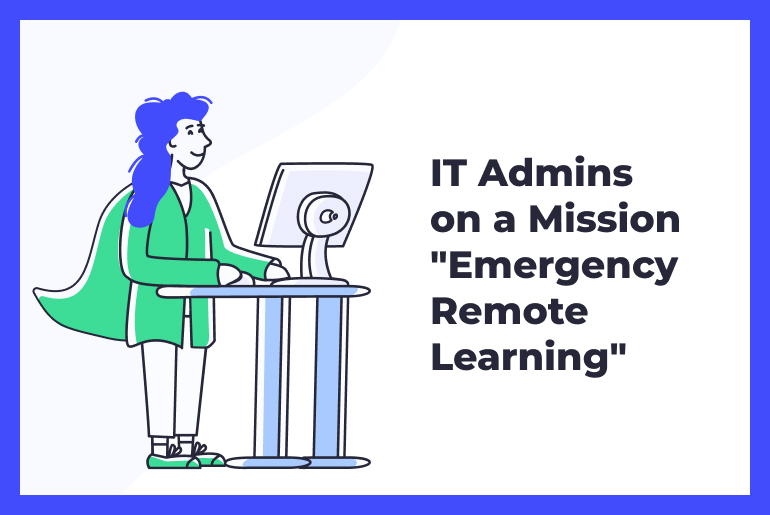Now, here, you see, it takes all the running you can do, to keep in the same place. If you want to get somewhere else, you must run at least twice as fast as that!
Alice’s Adventures in Wonderland
The world as we know it is changing every day, and it is all because of emerging technologies and innovations. It can be hard to keep up with all the changes. Lifelong learning is what is actually required for success in today’s information age.
Let’s suppose you’ve already earned a degree and graduated from a university. You have a good job, and you’re absolutely satisfied with your life. But it’s not over yet. If you feel like learning something new, something you’ve never tried before, but dreamt about for your whole life, you might be thinking, “Should I go back to school?”
[Tweet “A lifelong learning lifestyle keeps nourishing your brain”]
Lifelong learning means taking offline or online courses, reading and watching something educational, conducting research, joining study groups, or teaching. It can be anything.
But you need to have one thing. That one thing is self-motivation. It’s the key factor influencing your success in lifelong learning. So, what can motivate you best? And how can you become a lifelong learner? Take a look at the suggestions below.
There are different reasons to never stop learning:
1. Self-esteem grows high
The more things we learn from the outside world, the more we understand about ourselves. Imagine: You have always wanted to study psychology and just shelved the idea till better times. Then, you finally take an online course in psychology and find the information to be fascinating. Congratulations! You did it! You feel like a winner, because you made an effort and fulfilled one of your dreams.
2. More opportunities open
The wide range of interests and skills obviously give you more chances to succeed in life. You become an interesting person to talk to. You grow professionally. If you’re searching for a job, you’ll have a much higher chance of finding it quickly. Is there an interviewer who doesn’t like smart candidates who have a thirst for knowledge? Employers definitely appreciate the ability to learn.
3. Your brain stays sharp
No matter how old you are, it’s never too late to start learning. Even when you’re 80. Pamela Greenwood, a cognitive neuroscientist, says:
There appears to be good evidence that cognitive training has strong and durable benefits for cognitive functioning in older people. Cognitive training appears to change the brain structure and physiology, and neurogenesis may play a role in the benefits of new learning.
What should you do to keep on learning:
1. Read. Daily reading helps you stay aware of what’s going on around you. Reading is available any time, just enjoy it.
2. Research. It’s a good idea to conduct your own research. Once you see something worth investigation, don’t put it off.
3. Take a course. Online courses are available on Coursera, EdX, Open Culture, and others. These websites have user-friendly navigation that makes it easy to find useful and interesting courses that fit your needs.
4. Observe. So many amazing things are happening! Observation is a good trait that is useful regardless of your occupation.
5. Join a study group. Studying in a group is more effective than studying alone. Group work motivates members to take part in friendly competition. Besides, you can brainstorm and find solutions together. And, of course, you can count on your peers’ help.
6. Teach. The best way to improve your knowledge is to teach somebody else. You revise material helping others.
Top 3 excuses not to be a lifelong learner
- No time. I’m too busy to start learning something new. I hardly find time for my family.
- No money. Education costs money. Big money.
- No access. I’d like to study at Harvard. But I live in Bratislava.
He who cannot dance claims the floor is uneven. These three excuses are quite unreasonable. You can easily adapt studying to fit your schedule and allow a few hours each week to take a course or read materials. In fact, half of the available materials are free, and you can enjoy online courses and start studying remotely. So, now that these excuses have been rejected, it’s time to learn!
And one last thing: We all realize it’s vitally important to learn. However, not everyone knows how, exactly, it should be done. Before doing anything, you should learn how to actually learn. For instance, Coursera suggest a course on this subject, where online learners get to know more about avoiding procrastination, developing one’s potential and learning different techniques of effective memorization.
Share the tips on how to become a lifelong learner on Twitter or Facebook by using the super-easy share buttons on the left and check out our recent blog post about time management tips.





